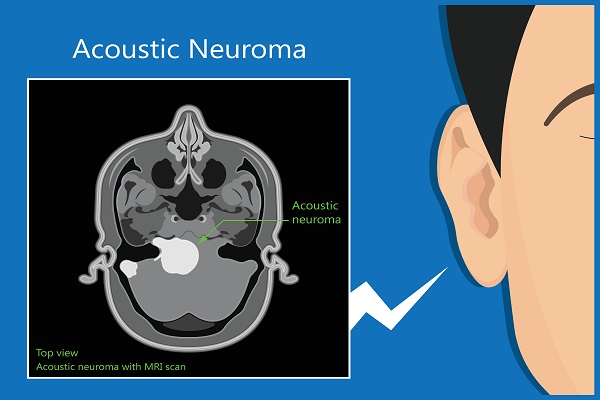What Is Acoustic Neuroma?

An acoustic neuroma is the short name for vestibular schwannoma. This brain condition is one that neurosurgeons tend to come across from time to time. While the term may sound familiar, not everyone knows exactly what it is. Continue reading to find out more.
A quick guide to an acoustic neuroma
Below is an overview of what an acoustic neuroma is, including how it is caused and how a neurosurgeon may treat it. Reviewing this information can be helpful for sufferers.
Definition and symptoms
An acoustic neuroma is a noncancerous tumor that tends to grow slowly in between the brain and the inner ear. This area is called the vestibular nerve, which is where the name vestibular schwannoma comes from.
As far as symptoms of an acoustic neuroma go, it is often actually difficult to even notice at first. Many individuals go years without realizing that they even have an acoustic neuroma. However, when symptoms do arise, they tend to look like the following:
- Hearing loss
- Tinnitus, ringing in the ears
- Dizziness and loss of balance
- Facial numbness or muscle spasms
Causes
The causes for acoustic neuroma vary, but generally speaking, most acoustic neuromas have no known causes. For the cases that do have apparent causes, neurosurgeons determine that it is a problem with a gene or chromosome 22. However, even most neurosurgeons and researchers do not know what causes the gene problem. Therefore, it is difficult to try and predict when an acoustic neuroma will arise.
Treatment
Treating an acoustic neuroma may include a number of things depending on the severity. The neurosurgeon may start out small with treatment and gradually increase when necessary depending on how the tumor grows. Most commonly, acoustic neuromas are treated with regular monitoring and testing. Neurosurgeons may also use radiotherapy or radiation to help reduce the size of the tumor. Additionally, surgical removal may be required if the tumor begins to grow out of control.
Other things to know
It is important to know that any type of brain condition can be scary to think or hear about; however, when it comes to acoustic neuromas, the majority of the time, neurosurgeons are able to just monitor them. Unlike other serious brain tumors, acoustic neuromas are noncancerous, which means there is little to no risk involved. Nonetheless, it is still necessary to regularly see a neurosurgeon for the appropriate monitoring to be done. Of course, because the tumor can grow, it is key to have the progression monitored.
Talk to a neurosurgeon
When suffering from an acoustic neuroma or other brain conditions, the best thing to do is consult with a neurosurgeon. An evaluation of the brain can be done to determine how severe the situation is. The patient can ask questions and go over anything concerns that may be outstanding. From there, any necessary work can be performed by the neurosurgeon. To find out more about acoustic neuromas or to get scheduled for a consultation appointment, reach out today.
Request an appointment here: https://arizonaneurosurgeon.com or call Randall Porter, M.D. at (602) 603-8951 for an appointment in our Phoenix office.
Check out what others are saying about our services on Yelp: Acoustic Neuroma in Phoenix, AZ.
Recent Posts
Brain metastases are a serious medical condition where cancer cells spread from a primary tumor to the brain. They are more common than primary brain cancer tumors and can indicate an advanced stage of systemic cancer. This condition can significantly affect your quality of life and requires professional diagnosis and treatment.Brain metastases occur when cancer…
Facial reanimation is a specialized surgical approach designed to restore movement and expression in individuals affected by facial paralysis. This condition may result from trauma, nerve injury, tumor removal, or conditions such as Bell’s palsy. Facial reanimation combines microsurgical techniques, nerve grafting, and muscle transfers to improve function and appearance. When performed by a skilled…
Brain surgery is a complex and delicate procedure. It requires strict aftercare to ensure optimal recovery and few complications. Following the advice of your brain surgeon can help aid your healing process and make your long-term treatment a success. Here are some general tips from Randall Porter, M.D. team to help patients and their caregivers…
Considering undergoing back pain treatment from an experienced chiropractor? There are many different types of back pain one can experience. There are also many different types of back pain treatments available from a chiropractor. While back pain is more common as one gets older, anyone can experience back pain. The most common cause of back pain…


